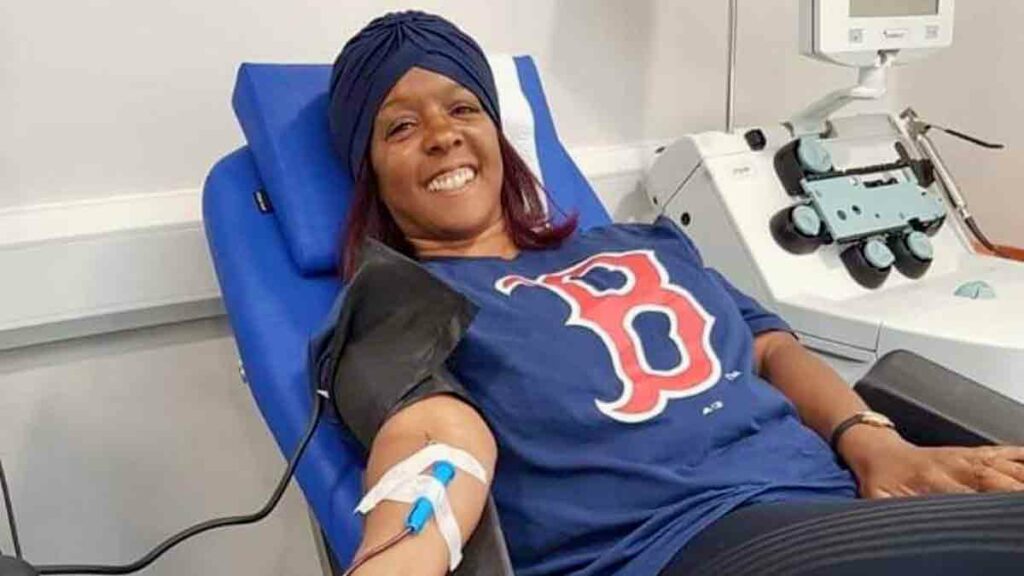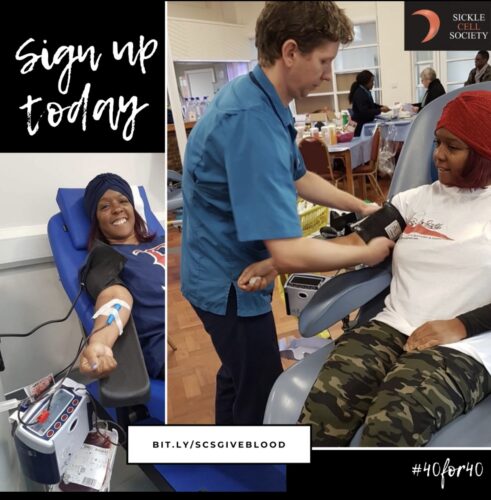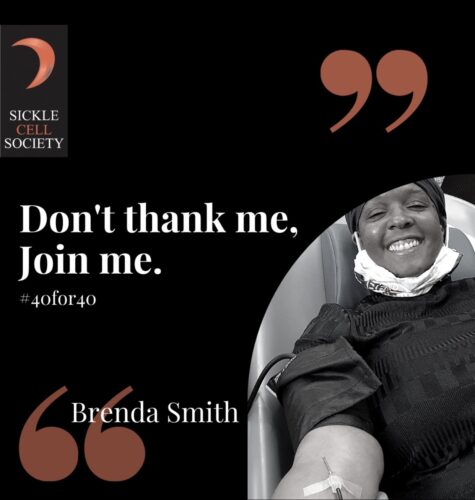South Londoner Brenda Smith has donated blood for sickle cell patients for more than half of her life. For her 40th donation, she hopes to recruit 40 new donors. Aaliyah Harry discovers what motivates her

An online exhibition hosted by Brixton’s Black Cultural Archives is among several initiatives to highlight the need for more Black blood donors to combat sickle cell disease.
Our Journey Our Story: History and Memory of Sickle Cell Anaemia in Britain1950-2020, presented by the Sickle Cell Society, is the first exhibition about the history of sickle cell anaemia in the UK.
Another initiative will see a woman who will soon make her blood 40th donation launch a campaign more Black donors.
For most people, birthdays are a time for receiving gifts, but for 52-year-old Brenda Smith from Croydon it’s a time to give back.
15 February will mark her 53rd birthday and 40th blood donation at Bromley library.
“When I started donating blood, I was in my 20s and it was by accident,” she says. “I was commuting back from work from St James Square through to London Bridge and I saw a blood donation van. The process seemed simple, so I donated.
“At that time, I didn’t know about sickle cell or where my blood was going. All I knew was that it was helping others and that made me feel really good and I just continued to donate.
“It wasn’t until I grew up and met friends with sickle cell that I understood about the importance for me as a Black woman to give blood.”

Sickle cell is most common in the Black community and affects between 13,000 and 15,000 people in the UK.
But only 1% of people who donate blood are of Black heritage.
NHS Give Blood says: “The increased demand for some rare subtypes, such as Ro and B positive, that are more common in people of Black heritage, means we need more Black people to become blood donors. Demand for these subtypes is growing as more people have regular transfusions to treat blood disorders such as sickle cell.”
Through her continued service to those with sickle cell, Brenda hopes to recruit 40 Black and mixed heritage donors.
She says: “You see Black nurses, but it would be nice to see more blood donation chairs in the hospitals occupied by Black donors.
“Sometimes there is hesitancy in our community to come forward and donate blood.
“I want people to know that it is extremely safe and any personal information they record is confidential.
“I’ve donated throughout the Covid-19 pandemic and the NHS are taking extra precautions.
“They rigorously clean equipment and take your temperature. The nurses are so kind and attentive.
“I’ve always felt so safe and this is across many different centres.”

Brenda has been unwavering in her support for giving back and even wishes she could give more.
“In the 40 sign-ups I would like at least half from men,” she says.
“They can give blood four times a year, as a woman I can only donate three times and I envy them.”
Tracy Williams from the Sickle Cell Society and South London Gives, which are heading the #40for40 campaign, highlights the need to diversify blood donations. The two organisations also hope to ease any hesitance from the Black community about the donating process.
Tracy says: “One of our main messages is that we need to diversify the blood groups and get more people with RO and B positive blood types coming forward, so sickle cell sufferers have a good match.”
“The NHS have been trying over the years to increase the amount of blood donations.
“However, I get a lot of people in the Black community saying they didn’t know just how much it was needed.
“That’s partly why the Sickle Cell Society was funded to do this work because were a grassroots organisation.
“We are a trusted voice in the community, so were able to share that message in a way that doesn’t always work when it’s done by a large outside agency.”
Brenda’s plea to Black communities is: “You are needed to save lives. I’ve got friends who have sickle cell and they are just so in awe of people who donate blood.
“If you understood what a pain crisis is like for someone with sickle cell, you would donate in a heartbeat.
“The pain they go through is excruciating compared to the scratch you go through to donate blood.
“Everyone has said Black lives matter, if Black lives really matter, then donate blood.
“if you can’t donate help us recruit and spread the word.”






